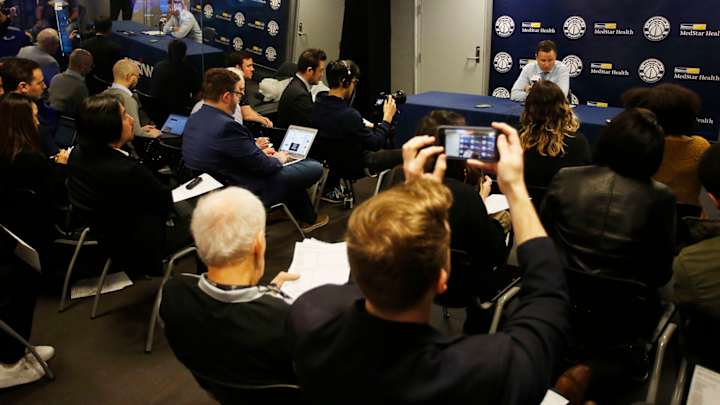How the Coronavirus Is Impacting NBA Front Offices

As concerns rise nationally surrounding the outbreak of coronavirus, and the NCAA announcing Wednesday that fans will not be allowed at its forthcoming postseason tournament, there have been immediate ramifications for NBA front offices behind the scenes. As of Wednesday evening, at least 10 of the NBA’s 30 teams had elected to pull scouting staff from the road entirely, according to league sources, with a number of teams deciding to make travel optional, but with a directive to shut things down by the end of the week. Others planned to remain on the road through the weekend, with D-I conference tournaments concluding Sunday.
Sports leagues and organizations worldwide continue to face questions over how best to respond to the threat of the virus (COVID-19), with the NBA’s biggest preventative step to date coming Wednesday, with the announcement that the Warriors and Nets will play behind closed doors in San Francisco on Thursday night. Per league sources, teams widely expect to play in empty arenas until further notice, with games continuing to be broadcast on television.
With large-scale gatherings of people being canceled and postponed worldwide, reducing the footprint of games and events has become a priority for the NBA. The possibility of a player or team employee testing positive—potentially leading to an entire team facing a two-week quarantine period—remains a worst-case scenario. Empty arenas would appear to be preferable to cancelling the season, but local governments, not the league, ultimately hold control over whether or not sporting events can be held. The Warriors chose to hold Thursday’s game without fans following an order from the San Francisco Health Office, which prohibited gatherings of 1,000 or more people, and the Chase Center followed suit by canceling and postponing upcoming concerts, in addition to a Santa Cruz Warriors G League game.
There is also increasing concern among front offices as to how the pre-draft process might be impacted this spring, with doubt being cast as to the eventual fate of May’s draft combine in Chicago. The combine annually gathers executives and scouts from all 30 teams and more than 100 prospects, plus a throng of player agents and families and local and national media. The logistics behind teams scheduling pre-draft workouts, which require draft-eligible prospects to fly frequently between cities in short time intervals, could become challenging from a health perspective. Scouting events like the Hoop Summit, Jordan Brand Classic, McDonald’s All-American Game and Portsmouth Invitational are all slated for March and April, and there remains a strong possibility that any or all could be impacted, in the interest of caution and limiting travel.
In the meantime, teams opting to play things safe are continuing to evaluate college and international games on television, with there being a level of familiarity by this point in the season surrounding college personnel. Traditionally, conference tournaments present a major opportunity for top executives, who tend to spend more time traveling with the team than scouting amateur prospects, to evaluate a wide range of players in person over the course of several days. With the NCAA opting to disallow fans from attending tournament games next week and beyond, the question of whether or not to travel will soon become moot. But with the 2020 draft widely viewed as a down year for potential NBA talent, and with little defined consensus surrounding the top prospects, any major changes or effects stemming from coronavirus concerns could throw major wrinkles into how teams prepare, and how player agents work to steer their players to amicable situations.
How the NBA chooses to handle the coming weeks—and more importantly, how the coronavirus situation develops nationally—will ultimately dictate the shape of the calendar. But given the precedent that’s been set over the past couple days, teams are preparing for the extreme.

Jeremy Woo has covered basketball for SI since 2014, including the NBA draft and weekly Power Rankings. He is from the South Side of Chicago.